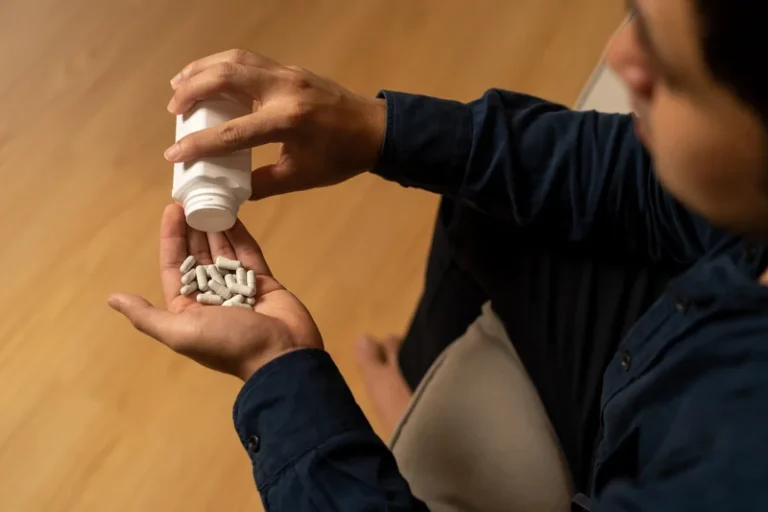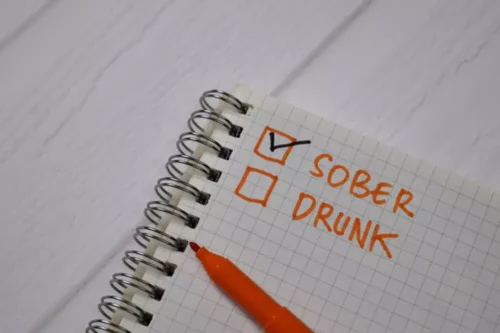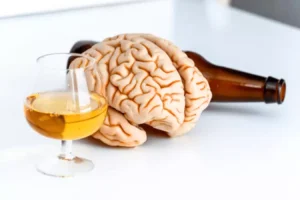
One strength of topiramate is the possibility of starting treatment while people are still drinking alcohol, therefore serving as a potentially effective treatment to initiate abstinence (or to reduce harm) rather than to prevent relapse in already detoxified patients (45). Although not approved by the FDA, it is worth noticing that topiramate is a recommended treatment for alcohol use disorder in the U.S. A concern with topiramate is the potential for significant side effects, especially those affecting cognition and memory, warranting a slow titration of its dose and monitoring for side effects.
Understanding Herbal Supplements for Alcoholism
Yet, compared to other health domains, little research has investigated alcohol-related behaviors, and harm reduction behaviors in particular, from an SDT perspective. The present chapter describes the lines of experimental evidence that feature the extracts of the roots of Salvia miltiorrhiza, a Chinese medicinal plant, as a potential pharmacotherapy for alcoholism. Indeed, it has been reported that the acute or repeated administration of extracts of S. Miltiorrhiza decreased alcohol intake and different alcohol-motivated behaviors in rats of the Sardinian alcohol-preferring (sP) line, an animal model of excessive alcohol intake. Miltiorrhiza extracts on alcohol intake observed in sP rats may be generalized to human alcoholics.
- However, excessive acetaldehyde accumulation can lead to unpleasant symptoms and cravings, making it difficult for individuals recovering from alcohol addiction to resist the urge to drink.
- In addition to exploring herbal remedies, addressing nutritional deficiencies is crucial for overall well-being.
- Using dandelion root, you're not just addressing the physical symptoms of alcohol addiction; you're engaging in an integrative approach that acknowledges the mind-body connection.
What the evidence suggests.

Professional treatment for alcohol abuse and withdrawal can provide a variety of important benefits. This type of care provides an individual with the best opportunity to address their addiction, as well as any underlying issues that may be contributing to it. Professional treatment offers around-the-clock monitoring and care, ensuring safety and providing stability during recovery. According to SDT, motivation is a multi-dimensional construct in that there are distinct types of motivation that vary in the extent to which they are self-determined, or autonomous (Ryan and Deci 2017). More specifically, these types of motivation exist on a continuum of self-determination (Figure 1). A list of the types of motivation and their respective definitions are provided in Table 1.

Functional assessment and treatment of alcohol use disorders
Embracing dandelion root as a natural remedy can greatly enhance the detoxification process and support liver health during holistic alcohol addiction treatment. You might be surprised how this humble herb can play such an essential role in your recovery journey. Dandelion root works by stimulating bile production, which aids in breaking down and eliminating toxins from your body. The ultimate goal of applying SDT to alcohol harm reduction behaviors is to address the public health burden of alcohol use by informing interventions, including prevention and treatment.

Drink water.
Thus, SDT makes important longitudinal hypotheses that can inform why people maintain harm reduction behaviors over time, whether that be naturally or following intervention. One starting place is to determine whether the TSRQ demonstrates predictive validity, especially whether autonomous motivation predicts harm herbs to curb alcohol cravings reduction behaviors over time while controlling for all other types of motivation. Once measures that demonstrate predictive validity are established, research can then extend to predicting response to interventions for alcohol use, as well as changes in drinking that occur outside of the intervention context.
- Additionally, chamomile's mild sedative properties can help alleviate insomnia, a common issue during alcohol withdrawal.
- Through the 1800s and early 1900s, the temperance movement laid the groundwork for mutual help organizations, and the notion of excessive alcohol use as a moral failing.
- You might find that it improves your mental clarity and focus, making it easier to adhere to your recovery plan.
Both these effects are essential for sustaining the mind-body connection crucial to holistic healing. A lack of needed nutrients can potentially make your withdrawal symptoms more intense. While it’s important to note that there is no cure for alcohol withdrawals, per se, there are many different natural treatments that may help you to manage https://ecosoberhouse.com/ your symptoms. If you’re wondering how to help alcohol withdrawals naturally, there are a few options you can try. Your health care provider or mental health provider will ask additional questions based on your responses, symptoms and needs. Preparing and anticipating questions will help you make the most of your appointment time.
There is an impressive body of literature supporting SDT across behavioral domains and cumulating evidence that SDT may be useful in explaining alcohol harm reduction behaviors. Future research applying SDT to alcohol harm reduction behaviors is warranted given support thus far and the potential for SDT to address the public health burden of alcohol use. Finally, contingent on further support for SDT in relation to alcohol harm reduction, novel interventions could be developed based on SDT. Detoxing from alcohol at home can pose serious risks, especially for individuals with severe alcohol dependence or underlying health conditions. Without medical supervision, withdrawal symptoms can escalate rapidly and lead to potentially life-threatening complications such as seizures or delirium tremens.

For example, there is considerable heterogeneity in treatment response to naltrexone, which may vary in efficacy in some individuals. Recent studies conducted to determine whether certain patients may benefit more from naltrexone have yielded mixed findings (95). Initial evidence suggests that naltrexone may be more effective in reducing heavy drinking among smokers (101) and among those with a larger number of heavy drinkers in their social networks (102). With respect to reinforcement typologies, recent work has found that naltrexone may be more effective among those who tend to drink alcohol for rewarding effects (103), and acamprosate may also be more effective for individuals who drink to relieve negative affect (104). Furthermore, it’s essential to exercise caution when considering other herbal remedies or essential oils for alcoholism recovery. While some herbal teas, such as chamomile, green tea, and milk thistle, have shown potential benefits, it’s best to consult with a healthcare professional before incorporating them into your routine.
Discover content
Those experiencing symptoms of alcohol withdrawal may seek out natural remedies to ease their discomfort. However, home remedies are in no way a substitute for alcohol detox from a healthcare provider. In your journey to overcome alcohol addiction, embracing holistic remedies can make a significant difference.
- When you're looking to support your body holistically during alcohol addiction recovery, dandelion root is a powerful ally.
- However, home remedies are in no way a substitute for alcohol detox from a healthcare provider.
- This type of herb may help restore liver health from damage caused by heavy drinking.
- Pharmacological and behavioral treatments exist for alcohol use disorder, but more are needed, and several are under development.
- Your body's natural healing processes are interconnected, and any imbalance can impact your overall well-being.
- This can lead you to drink less or stop drinking which can prevent or ease withdrawal symptoms.
Milk thistle for the liver.
Very little is known about factors, particularly neurobiological, genetic, and epigenetic factors, that predict the transition from alcohol use to alcohol use disorder, although basic science models suggest that a cycle of neuroadaptations could be at play (15, 16). We also lack a basic understanding of how individuals recover from alcohol use disorder in the absence of treatment and what neurobiological, psychological, social, and environmental factors are most important for supporting recovery from alcohol use disorder. Gaining a better understanding of recovery in the absence of treatment, particularly modifiable psychological, neurobiological, and epigenetic factors, could provide novel insights for medications and behavioral treatment development.
